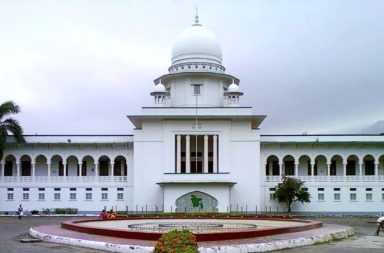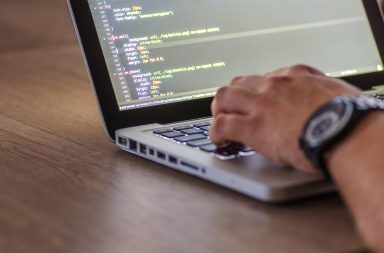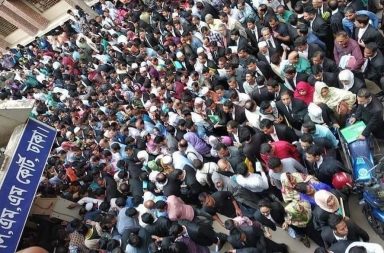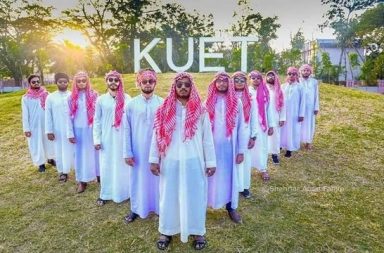By Aiman Rahman Khan
One thing Bangladeshis of this generation never had to worry about is citizenship. Unless we are trying to extend our visa by taking an extra course in Canada, or travelling with a maternity leave, we always took citizenship for granted. Studying that next course was about getting a reason to stay back; travelling with heavy legs was to legalize it…. all for citizenship. We only realise the true importance of something when we earn it. That is why those of us Bangladeshis who were not born before 1971 won’t ever understand the true feeling of earning freedom and identity. Hence this month last year, the Government of Bangladesh found an interesting way to make everyone in this country appreciate and be grateful for their citizenship. With the Citizenship Law 2016 (hereafter the new law), students in foreign countries may lose many opportunities in their homeland.
Citizenship has many forms: naturalization, jus matrimoni, jus sanguini and jus soli, dual citizenship etc. Bangladeshi citizenship is provided primarily jus sanguinis, or through bloodline, irrespectively of the place or legitimacy of the birth. Therefore, any person born to a Bangladeshi woman illegitimately outside Bangladeshi soil would still be a Bangladeshi citizen, whereas a person born to two non-nationals in Bangladesh would not.[1] S. 4 (1) of the new law seems to show that those born in Bangladesh whose parents died before 26th March 1971, are not regarded as having citizenship by birth. [2] Such a provision conflicts with Article 15 of UDHR which provides ‘Everyone has the right to nationality’.
The law that governed the citizenship of Bangladesh prior to the bill, existed in the Citizenship Act 1951 and the Bangladesh Citizenship Temporary Provisions Order 1972. Both these unified Acts will be repealed with the enactment of the new law. The draft law has six chapters and 28 sections which highlighted the process for gaining citizenship, disqualification of getting citizenship, surrender and dissolution of citizenship.[3] Among the other things, it re introduces the term ‘Alien Enemy’ which can found in the Citizenship Act 1951. If one’s parents were an alien enemy, that person could lose their citizenship. If one’s father or mother “denies the existence of Bangladesh” or is “engaged in any activity against Bangladesh,” that any person will not be qualified to be a Bangladeshi citizen.[4]
Section 6 of the Bill purports to state that a citizen of Bangladesh by birth loses his citizenship upon acquiring a foreign citizenship, but then in certain circumstances, they may apply to the government for their Bangladeshi citizenship. [5]The new law expands the existing provision of getting “dual citizenship” by the expatriate Bangladeshi nationals. The restrictions include being ineligible to contest a parliamentary election, hold the post of President or any local government position, or be appointed to any service of the republic including a justice of the Supreme Court. It also disallows such people from being involved in any political party.[6] The Bangladeshi diaspora in KSA, UAE, USA, Malaysia contribute to the overall economy of this country. Limiting their rights would mean slowing down of the flow of remittance which may prevent Bangladesh to increase its foreign currency reserve.
The ones to be mostly affected by the new law are the urdu speaking non Bengalis residing in Bangladesh. It is commonly estimated that there are some 240,000 to 500,000 Urdu-speakers – popularly known as ‘stranded Pakistanis’ or ‘Biharis’ – who are normally considered as existing in a situation of statelessness in Bangladesh. [7] In 2008, the Supreme Court[8] stated that all members of the Urdu-speaking community were nationals of Bangladesh in accordance with its laws and directed the election commission to include them in electoral rolls and give them national identity cards. This declaration ended the statelessness of more than 300,000 Urdu-speaking men, women and children residing in the country.[9] Taslima Yasmin, law teacher at the University of Dhaka, said that the draft citizenship act would make groups of people, including Urdu speakers, stateless if it is enacted unchanged. [10]
As Bangladeshis, we never were familiar with classes. We never bothered who are first class citizens or who aren’t. Enactment of such an Act would not only curtail the rights of many classes of the society, it would create a division. This strongly conflicts with the Constitution of Bangladesh which talks about equality of opportunity and non discrimination. The possible consequences would be denying the basic rights of many Bangladeshis. We cannot afford to do so since we are still struggling with our economy. The new law which is to be enacted if not amended may deprive the fundamental rights of many Bangladeshis and the generations that are to follow.
Aiman Rahman Khan is currently pursuing his Master of Social Science with a major in Victimology and Restorative Justice from University of Dhaka.. He completed his LLB from University of London and LL.M from Eastern University, Bangladesh.
References:
[1] Bangladeshi Nationality Law [https://en.wikipedia.org/wiki/Bangladeshi_nationality_law]
[2] Khasru N (2017), ‘Review proposed citizenship law’ [http://www.thedailystar.net/opinion/human-rights/review-proposed-citizenship-law-1341784]
[3] Bangladesh Awami League (2016) ‘Cabinet approves the Citizenship Law 2016’, [available at: https://www.albd.org/index.php/en/updates/news/3420-cabinet-approves-the-citizenship-law,-2016]
[4] Chaity A (2017) ‘New citizenship bill creates second class citizens’, Dhaka Tribune Newspaper [http://www.dhakatribune.com/bangladesh/law-rights/2017/02/05/new-citizenship-bill-creates-second-class-citizens/]
[5] Ahmed N (2016) ‘The proposed Citizenship Bill 2016 and Bangladeshi diaspora’ The Financial Express [http://www.thefinancialexpress-bd.com/2016/06/14/34121/The-proposed-Citizenship-Bill-2015-and-Bangladeshi-diaspora]
[6] Chaity A (2017) ‘New citizenship bill creates second class citizens’, Dhaka Tribune Newspaper [http://www.dhakatribune.com/bangladesh/law-rights/2017/02/05/new-citizenship-bill-creates-second-class-citizens/]
[7] Paulsen E (2006) ‘The Citizenship Status of the Urdu-Speakers/Biharis in Bangladesh’, (UNHCR, 2006)
[8] Sadaqat Khan V Chief Election Commissioner (2008)
[9] Schönbauer R, Shadman O (2015), ‘How a Bangladesh court ruling changed the lives of more than 300,000 stateless people’ [http://www.unhcr.org/news/latest/2015/2/54ec22869/bangladesh-court-ruling-changed-lives-300000-stateless-people.html]
[10] New Age Newspaper (2016), ‘Bangladeshi Urdu speakers should get passport: speakers’ [http://www.newagebd.net/article/4469/bangladeshi-urdu-speakers-should-get-passport-speakers#sthash.ctQ11kaI.dpuf]



